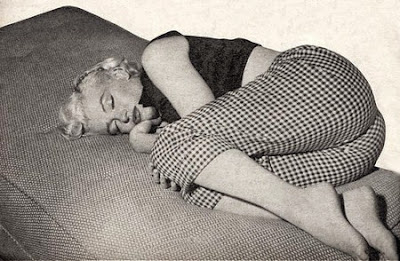Battling a chronic illness means that you are constantly faced with things that you can't do, or join in with or just fear doing. When you are in pain, exhausted, emotionally drained and just generally not feeling well, it can become almost impossible to pick yourself up and go about life in the way you want to.
In some cases, patients are simply too poorly to carry out normal every day tasks, let alone embark on careers, holidays and social events. This is a whole other battle in itself. However, facing an illness where you do have your good days, and you can manage the pain and symptoms to some extent, mean you have these fleeting times of feeling like you can do it. Whatever it is, being traveling, a weekend away, going to work for a full week or just having a night out with friend, you feel able and ready to take it on.
Hypermobility syndrome is a limiting condition, and as I have written many times before, impacts life in a big way for those who have it. It's important when you have plans, no matter how big or small, to plan. You need to ensure you have treatments with you, be it painkillers or a hot water bottle and that you have plenty of support available should you need it. I am a big planner, and it has meant that I have been able to do so much that three years ago, I would have thought impossible.
When I booked a trip to Isle of Skye with my friends, I was in the first instance really excited, and then began to worry. We decided to drive, and believe me, it is FAR. We were in the car for 14 hours going up, with a few stops to eat and stretch. Needless to say, I needed a heat pad, lots of leg room, ibuprofen and some serious relaxation during and after the journey.
Skye is very much a walking and scenery holiday. It's different to anything I would normally do and I accepted from the off I would be limited and went there with a nagging worry that I would really hurt myself or end up laid up in bed with a dislocated hip. However what I also went with was a can-do attitude, good trainers, a list of exercises and knowledge of what I can do and what i can't. Yes, I have to refrain from doing as much as my friends, but I can still do plenty. I can still go on days out and walks and travel around, I just have to do it for me, within my limits. So that's what I did. ( I also looked up and located the nearest A&E, because you know, life and all that.)
I did have to hang around on the side of a giant hill while everyone else went all the way to the top, which wasn't ideal, but I still went, and I still gave it a go and I got to take amazing photos and sort of play in some snow (let's be honest, snow isn't for the hypermobile). I needed help getting down and I had to take painkillers in the evening, but to be honest, I need this most days, sometimes even on stairs, so it wasn't much different.
I went out everyday, walked really far, climbed a bit, tasted whiskey, saw some rainbows, saw an eagle, saw a seal, drank lots of coffee and ate loads and I am so glad I did. I kept check of my joints and pain, used heat when I needed it, luckily had a friend with an electric massager, took hot baths and took everything slowly and carefully.
I mean , there was a hairy moment when I couldn't cross a river (I didn't realise this was going to be necessary as it wasn't on the walk list or map) and I had to rely on the patience and good will of my friends to help me, but despite the ten minutes of joint pain that followed and the back ache that evening, I felt good. Everyone felt a bit like an intrepid explorer, but I felt like I had conquered something more than a 9k trek.
Having an can-do attitude means I think more about things in advance and I come up with ideas of trips I want to do, places I want to go and friends I want to visit. I think foremost about the experience, and then I do the planning and logistics of doing these things with a condition. If I can't do them, i can't do them, at least I have other things floating around my head to keep me going. it'll never stop being frustrating, but it will also never rule my head.
When I was first diagnosed and in constant pain that was managed badly, all I wanted to do was lay in bed or in the bath. I stopped exercising and the idea of going away and being on a plane or in a car was laughable. Now though, I just think 'I can', until I realise I can't, and that's okay. The positive thoughts alone make a big difference. Sometimes just lounging on a sofa in front of a fire is enough of an experience.












